Strategic direction, being one of the most important forces in a business, establishes the structure for internal responsibilities. It allows a common purpose towards which all employees drive their activities and produce the results the Bank is looking for.
A transformation agenda was set by SDB Bank and several strategies were set in motion in 2018. The key strategies identified are:
- Rebalancing the Bank’s advances portfolio with an emphasis on growing the participation of the SME and co-operative sectors while reducing its exposure to the retail segment.
- Guiding the Bank back to its founding purpose by focusing and strengthening its activities in development financing.
- Equipping the employees with skills required to propel the Bank’s transformation agenda.
- Improving process efficiencies by centralising all credit approvals and introducing a Loan Originating System to improve loan turnaround times and ensure the consistent application of the Bank’s credit policy.
- Strengthening SDB Bank’s digital proposition with the development of the mobile banking application.
- Embedding sustainability considerations into its lending proposition.
- Developing a non-financial strategy aimed at enhancing financial literacy, customer education, and the empowerment of women.
SDB Bank’s contribution to sustainable development
As the primary development bank with a strong rural presence in Sri Lanka, SDB Bank’s strategic direction and core operations are geared towards the socio-economic progress of the communities it operates in. The Bank’s unique status places it in a prime position to contribute to the UN Sustainable Development Goals (SDGs) agreed to by global leaders in September 2015. The 17 SDGs are geared towards mobilising efforts to end all forms of poverty, fight inequalities and tackle climate change, while ensuring that no one is left behind.
SDB Bank is at the forefront in its efforts to make its contribution to achieving these goals.
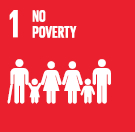 |
SDG 1 – end povertyThe Bank’s transformation agenda is clearly directed at focussing on the SME, micro-enterprises and the co-operative sector which affect grassroot level communities. This is a segment of society that have hitherto not had sufficient access to the formal financial system. SDB Bank’s lending has paved the way for these individuals and families to start-up businesses, generate employment, and alleviate poverty to some extent. The Bank disbursed LKR 21,929 Mn. to SMEs and micro-enterprises across the island in 2018. |
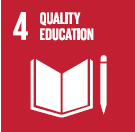 |
SDG 4 – educationThe Bank’s CSR initiative, SDB Lakdaru Scholarship Seminars, is an ongoing project aimed at providing access to academic support for children attempting scholarship examinations. 43 programmes were carried out in Sinhala and Tamil throughout the country with the participation of 32,000 students. |
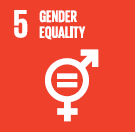 |
SDG 5 – gender equality and women empowermentThe empowerment of women is a key aspect of the transformation agenda of the Bank. “SDB Uththamavi” is a product designed to provide investment and lending opportunities at attractive rates, for women entrepreneurs. The Bank disbursed LKR 20,239 Mn. in support of entrepreneurial activities spearheaded by females. The Bank is an equal opportunity employer with females comprising 48% of the total permanent workforce. |
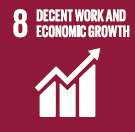 |
SDG 8 – economic growthThe Bank’s approach to economic growth is closely aligned with meeting the first goal of alleviating poverty. The two are inexorably linked given SDB Bank’s close association with the rural sector and their activities in investment and lending in the micro-economic segment of the market. |
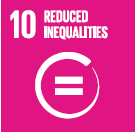 |
SDG 10 – reduced inequalityA substantial portion of the Bank’s lending is channelled to co-operative societies whose role is primarily with the country’s grassroot communities. SDB Bank is also an active participant in distributing Government funds, at concessionary rates, for rural development and poverty alleviation. In 2018, LKR 840 Mn. was disbursed by the Bank in this regard. |
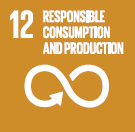 |
SDG 12 – sustainable consumption and productionThe Bank has committed itself to consumption practices that are weighted towards Reducing, Recycling, and Reusing resources. Through this process the Bank has reduced the use of paper, fuel, energy, and electronic waste. |
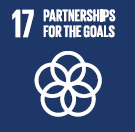 |
SDG 17 – partnershipsThe Bank has partnered with numerous Government agencies, such as the National Enterprise Development Authority, Small Enterprises Development Division, Southern Development Authority and Divisional Secretariats, to access those communities who are most under-served in terms of resources. SDB Bank has through these partnerships, been able to promote socio-economic progress in these communities. The combination of the imperatives placed before the Bank, through its transformation agenda and its commitment to the SDGs, is helping to propel the Bank’s activities in a way that will enable it to reach a higher and more profitable level of operation, while lessening its environmental footprint and promoting its growth as a responsible corporate citizen. |